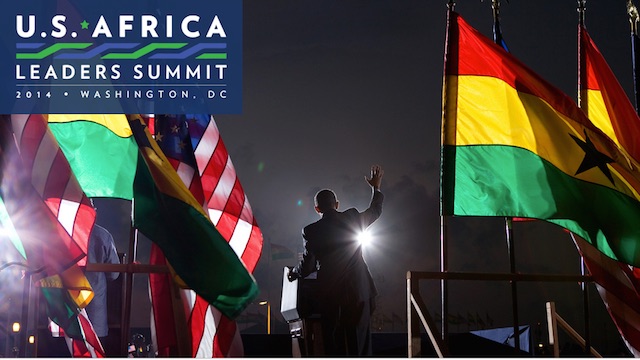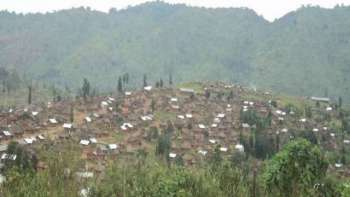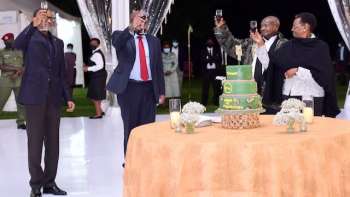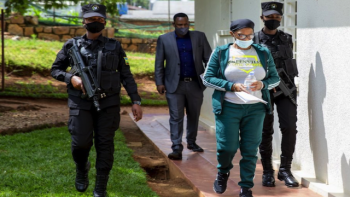African presidents and dictators have started to arrive in Washington, DC to attend the US -Africa Summit convened by US President Barack Obama. Close to 50 African leaders are expected in this largest ever gathering of African leaders in Washington. The summit will be held from Monday, August 4, 2014 to Wednesday August 6, 2014. According to the White House, the summit aims at "elevating our engagement for Africa". President Obama has long been clear about the objective of the summmit: "I do not see the countries and peoples of Africa as a world apart; I see Africa as a fundamental part of our
interconnected world – partners with America on behalf of the future we want for all of our children. That partnership must be grounded in mutual responsibility and mutual respect."
However, behind these lines, most observers agree that the US Government, under President Barack Obama, has been frustrated by slow democratic process in Africa and persistent insecurity in strategic parts of the continent. On the other hand, several Africans have complained of the lack of focused policy towards Africa and the continued support for African dictators by the US Government.
Based on the calendar of the events, "African leaders will have an opportunity to engage with President Obama, his Cabinet members, and other key leaders, including business executives from the U.S. and Africa, Members of Congress, and members of civil society." But, the Whitehouse has been clear: US President Obama has ruled out one-on-one talks with African heads of state, to make sure some of them are not pushing idiosyncratic interests, that do not advance the common interst of the continent.
First, Mutual Economic Interests.
According to the Whitehouse, discussion will center around: "trade and investment, engaging young African leaders, promoting inclusive sustainable development, expanding cooperation on peace and security, and gaining a better future for Africa’s next generation."
Brief, the United States want to make sure that the United States becomes the preferred partner for the future. Perhaps, because the past and the present have been owned by China. But the United States, contrary to China, has changed the content and the tone of the conversation. For China, it was about the African natural resources and how to exploit them. For teh United States, it is about trade and investment relationship.
Another Difference between US and China: Democracy.
For China, it all about business and natural resources; democracy could wait. For the US, all go together. To prove the point, the US excluded the presidents of Zimbabwe, Sudan, the Central African Republic, Eritrea and Western Sahara were excluded from the meeting. It is also expected that the change of constitution by some African dictators to hold onto power will be addressed. In the last decades, changes to the constituion of their country have been done, attempted, or are being contemplated by prominent African leaders such as Yoweri Museveni of Uganda, General Paul Kagame of Rwanda, Pierre Nkurunziza of Burundi, Joseph Kabila of the Democratic Republic of the Congo, Sassou Nguesso of Congo, Paul Biya of Cameroon, Robert Mugabe of Zimbabwe, and Abdulaye Wade of Senegal.
Hence observers and African opposition leaders have criticized the US double measured approach to democracy in Africa. For example, some wondered why dictators such as Yoweri Museveni of Uganda, General Paul Kagame of Rwanda, Paul Biya of Cameroon, Sassou Nguesso of the Republic of Congo, were invited at all, when the Zimbabwean leader Robert Mugabe was excluded. Others also wondered why the US has not fully and wholeheartly supported the peace initiative proposed by the Tanzanian President Jakaya Kikwete to bring peace in the Great Lakes Region of Africa.
African Leaders Must Solve Their Own Problems
US President Obama, although convening the summit, is clear about how he views the cooperation between the US and Africa. It is up to African leaders to clean up their houses, before seeking help from outside. President Obama emphasized the point during an address to a Young African Leaders meeting in Washington in late July 2014: "There are a lot of countries that are generating a lot of income, have a lot of natural resources, but aren't putting that money back into villages to educate children. There are a lot of countries where the leaders have a lot of resources, but the money is not going back to provide health clinics for young mothers. At some point, we have to stop looking somewhere else for solutions, and you have to start looking for solutions internally."
This led most observers to argue that African leaders and Africans in general may have misplaced their unreasonable expectations in Obama's presidency. They may have wrongly assumed that President Obama was going to favor the continent in which his father was born and forgotten that Obama is, first and foremost, the President of the United States of America; that USA's interests come first, whether it comes to Africa or to any other continent.
That is why, perhaps, many expectations may not be met during the summit.

















